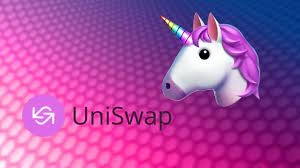
Recently, the Uniswap ecosystem witnessed a highly anticipated governance development. Devin Walsh, the Executive Director of the Uniswap Foundation and a platform co-founder, officially announced through official channels that she, alongside Uniswap founder Hayden Adams, has drafted and submitted a landmark joint governance proposal. The core of this proposal lies in plans to formally activate the currently disabled protocol fees mechanism and to establish a unified, coordinated, and sustainable incentive system throughout Uniswap's vast and active ecosystem.
This strategic move is not merely a simple functional update; it carries more ambitious and far-reaching goals. As Walsh pointed out when elaborating on the proposal's vision, enabling protocol fees and unifying incentives aim to inject new developmental momentum into Uniswap at both the protocol's foundational logic and community governance levels. The ultimate goal is to propel Uniswap from being an exceptional decentralized exchange (DEX) to further evolve into the "default" infrastructure and preferred decentralized platform for tokenized asset trading globally. This not only means consolidating its leading position in the existing crypto asset trading space but also serves as a crucial strategic preparation for welcoming the wave of mass on-chain trading of broader asset classes, such as real-world assets (RWA), in the future.
Specifically, the "protocol fees" mechanism involved in this proposal refers to taking a portion from each transaction at a preset, relatively low rate (for example, one-fifth or one-tenth of the original trading fees), in addition to the existing trading fees earned by liquidity providers, to serve as revenue at the protocol layer. This revenue will be managed uniformly by the decentralized autonomous organization (DAO) treasury, and its use will be entirely determined by UNI token holders through community governance votes. This provides a stable and predictable funding source for the ongoing development, maintenance, security audits, ecosystem incentives, and long-term sustainable development of the Uniswap protocol.
Simultaneously, the "unified incentive mechanism" aims to address potential issues of incentive fragmentation or insufficiency within the current ecosystem. Through a carefully designed, community governance-driven incentive framework, a portion of the revenue generated from protocol fees can be accurately and efficiently redistributed to participants who make critical contributions to the network's security, efficiency, and user experience, such as liquidity providers in specific core pools, or even token stakers who actively participate in protocol governance. This will create a virtuous cycle of "contribution-incentive-recontribution," enhancing the ecosystem's endogenous growth momentum.
It is foreseeable that if this proposal is successfully passed and implemented, it will have multiple and profound impacts on Uniswap and the entire DeFi space. Firstly, it will significantly enhance Uniswap's own "value capture" capability and financial sustainability, enabling it to no longer rely solely on external funding or team reserves but to become self-sustaining, supporting its long-term evolution and innovation. Secondly, through a robust and unified incentive network, it can more effectively attract and retain high-quality liquidity, improve capital efficiency, thereby providing users with more competitive trading prices and lower slippage, and consolidating its market leadership position.
More importantly, this change will greatly enhance the intrinsic value and governance weight of the UNI token. UNI holders will not only have a say in the future development direction of the protocol but will also directly participate in the decision-making process for distributing the protocol's economic benefits. This elevates UNI beyond a mere governance token, taking a crucial step towards becoming a "productive asset" supported by cash flow, which is expected to further strengthen community cohesion and attract a broader investor base.
In summary, this proposal jointly initiated by Devin Walsh and Hayden Adams marks Uniswap's governance and economic model entering a new stage of development. It is not just about "enabling fees" but about how to build a more robust, fair, and competitive decentralized economic system. This strategic choice will undoubtedly lay a more solid foundation for Uniswap in the increasingly fierce competition among decentralized trading platforms and pave the way for realizing its grand vision of "becoming the default platform for tokenized asset trading." The entire community, and indeed the entire crypto world, will be closely watching the subsequent progress and impact of this important proposal.
















